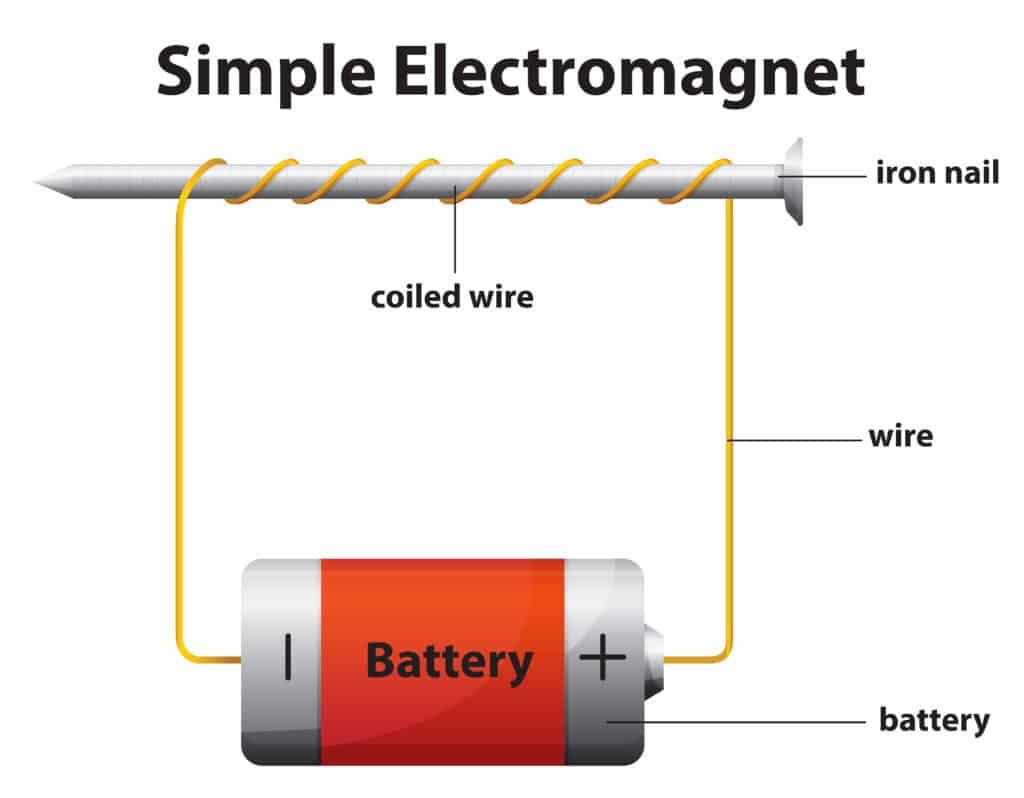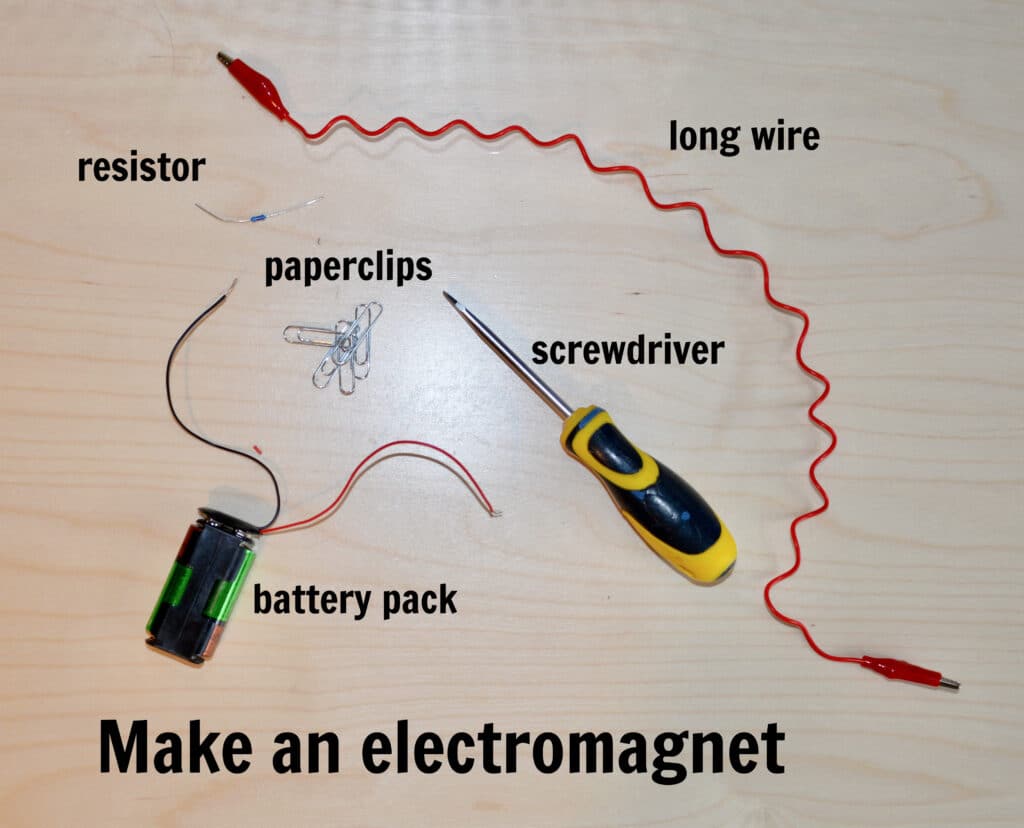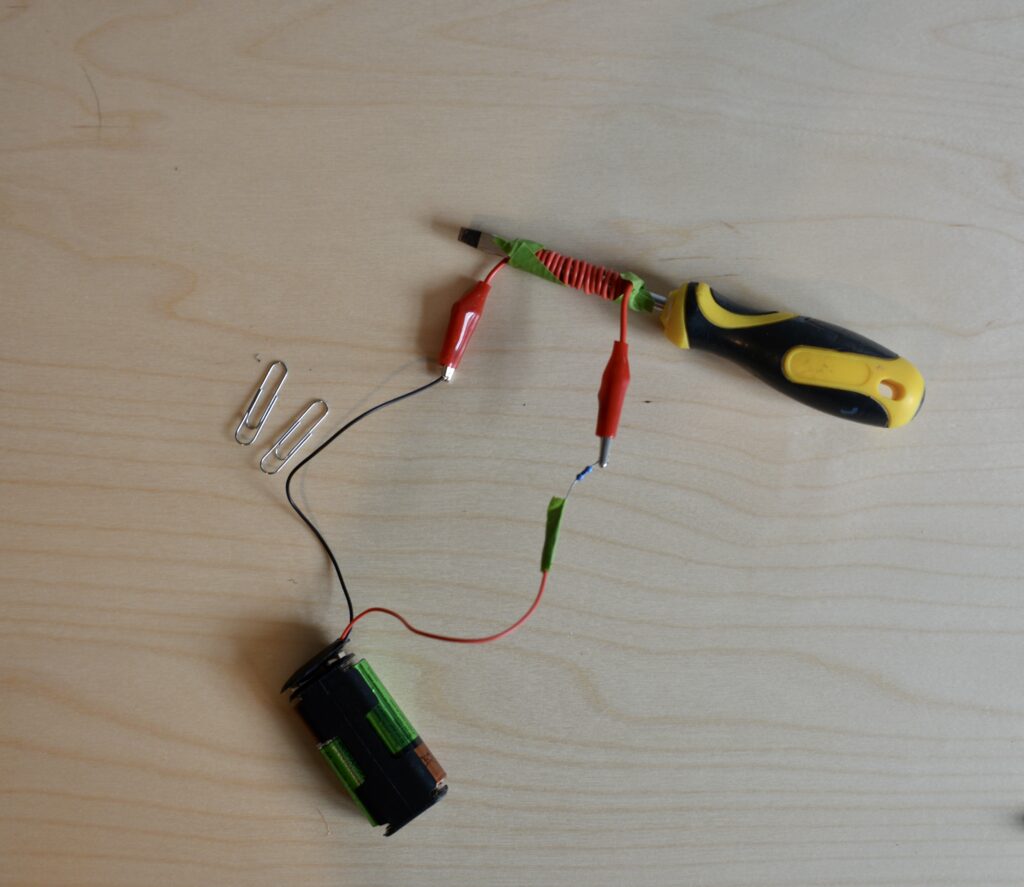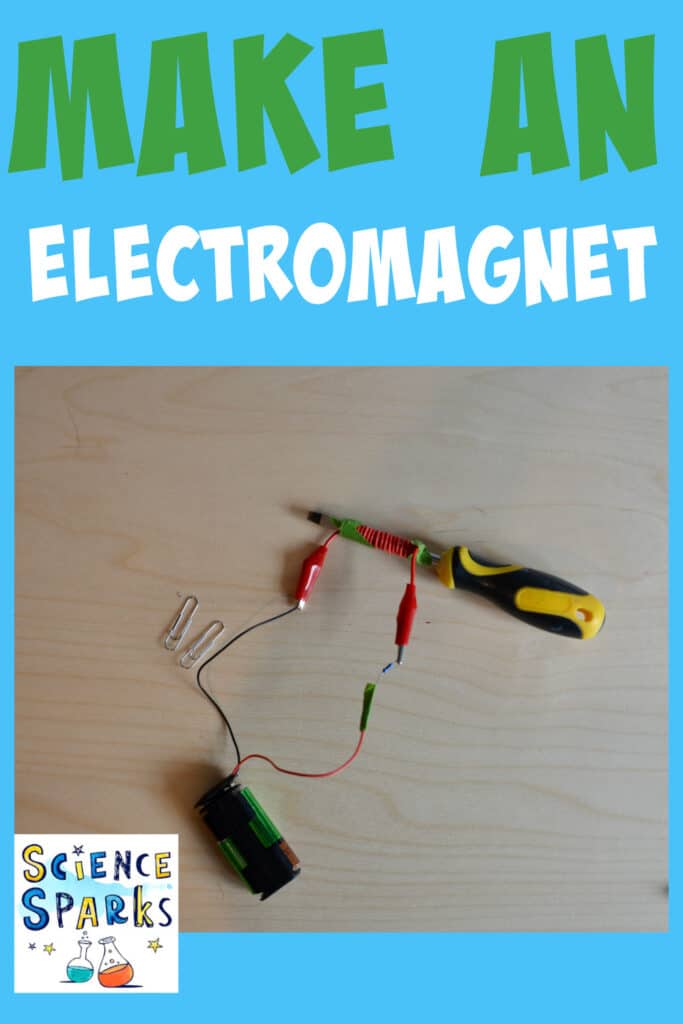Electromagnets are electrically powered magnets that can be turned on and off. You can make your own electromagnet with a simple battery-powered circuit and a screwdriver or iron nail.
As electricity flows through the wire coiled around the screwdriver, it creates a magnetic field which magnetizes the metal of the screwdriver.
This activity should be supervised by an adult at all times. The circuit should be disconnected when not in use.
What is an electromagnet?
An electromagnet forms when the current flowing through a wire causes a magnetic field around the wire, which magnetises the metal inside the coil.
The long coil of wire is called a solenoid.

How to increase the strength of an electromagnet.
- Increase the current going through the wire.
- Add more turns of wire to the solenoid.
- Use a soft iron core. Iron is used as it doesn’t stay magnetised when the current is turned off.
Electromagnets have lots of uses as the magnet can be turned on and off as needed and can be made stronger or weaker.
Electromagnets are often found in electric bells and loudspeakers and are useful for sorting rubbish and recycling.
Electromagnets are also used in maglev trains. The trains are suspended above the track by magnets, which reduces the friction between the track and the train allowing it to travel very quickly!
To make an electromagnet, you will need
Paper clips to test
Long wire
Resistor
Insulated tape
Screwdriver – not already magnetic or iron nail
Battery pack and batteries

How to make an electromagnet
Attach one end of the long wire close to the handle of the screwdriver using tape.
Coil the wire along the screwdriver as tightly as you can. Tape the wire in place.
Connect the crocodile clips to the battery pack with a resistor between one of the connections.
We used the resistor to reduce the current flowing around the circuit. Without the resistor, the batteries and wire got very hot quite quickly, so always disconnect the circuit when you’ve finished testing the electromagnet.
Test the electromagnet by placing it near a paperclip. The paper clip should be attracted to the end of the screwdriver.

Extension Tasks
Add more turns of wire to the screwdriver, this should make the magnetic field stronger.
Make an electromagnet using an iron nail, does this work better?

If you enjoyed this activity, don’t forget to check out my other electricity and circuit activities for kids.
Last Updated on March 3, 2023 by Emma Vanstone

Leave a Reply